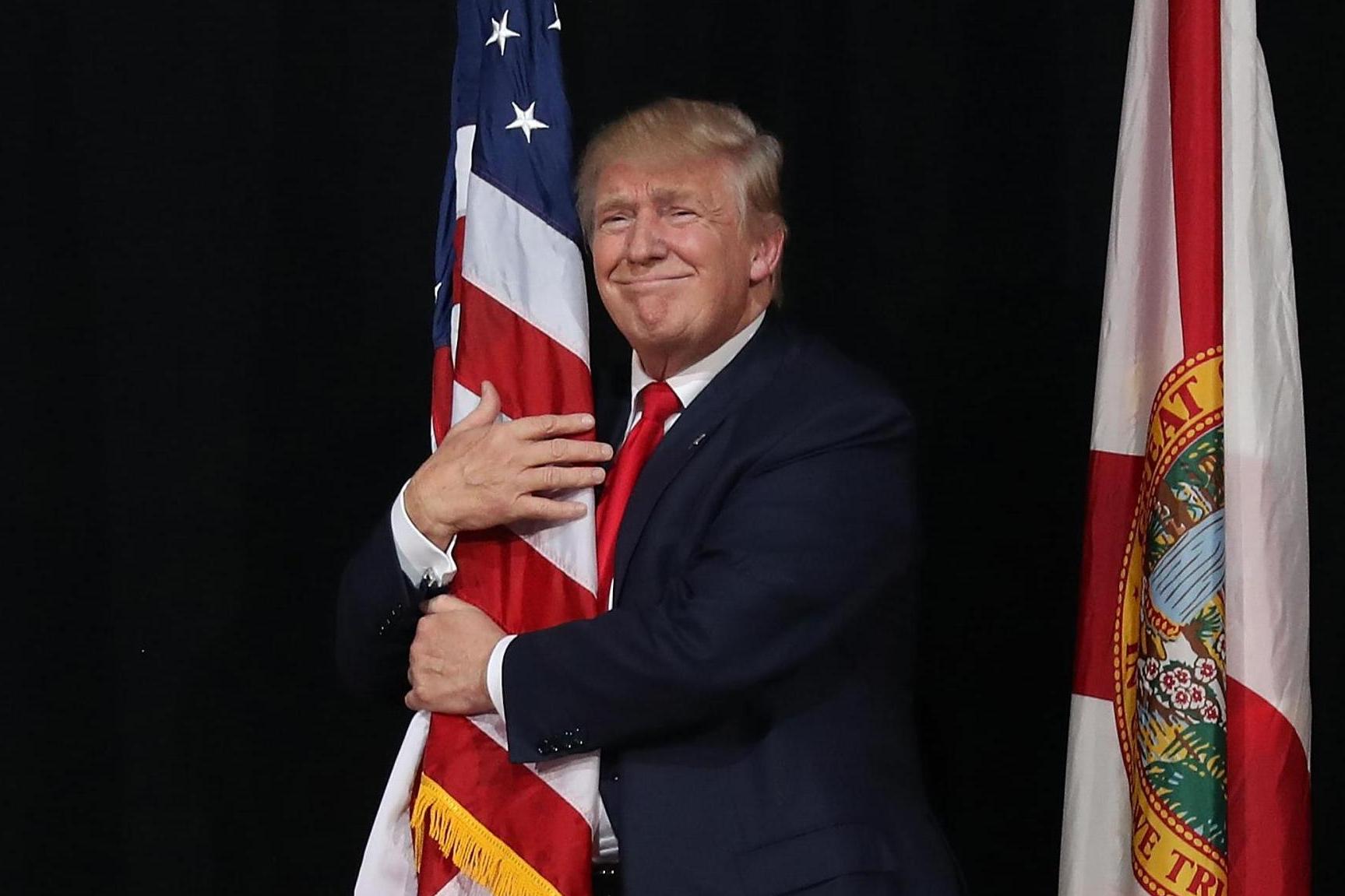How Donald Trump's tax cuts could directly enrich himself and US most wealthy
'This should really be called the 'Put Rich Guys Back on Top Tax Act of 2017''

Your support helps us to tell the story
From reproductive rights to climate change to Big Tech, The Independent is on the ground when the story is developing. Whether it's investigating the financials of Elon Musk's pro-Trump PAC or producing our latest documentary, 'The A Word', which shines a light on the American women fighting for reproductive rights, we know how important it is to parse out the facts from the messaging.
At such a critical moment in US history, we need reporters on the ground. Your donation allows us to keep sending journalists to speak to both sides of the story.
The Independent is trusted by Americans across the entire political spectrum. And unlike many other quality news outlets, we choose not to lock Americans out of our reporting and analysis with paywalls. We believe quality journalism should be available to everyone, paid for by those who can afford it.
Your support makes all the difference.At least two of the measures included in Donald Trump’s proposed tax cuts stand to make him, his family and the wealthiest Americans much richer, experts have claimed.
The billionaire businessman's plans were described as the "biggest tax cut" in US history by American Treasury Secretary Steven Mnuchin and billed as a boon for ordinary businesspeople.
The proposed cut to corporation tax and income tax for the US's highest earners, has caused outrage among some critics.
But measures like reducing pass through business tax and the repeal of the estate tax, have been welcomed by the richest people in the country.
A pass-through entity is a special business structure like a hedge fund, that is used to reduce the effects of double taxation. They do not pay income taxes at the corporate level but this is allocated among the individual owners instead.
Mr Trump is well known for his real estate empire, which is reportedly run as a collection of pass through businesses.
Tax cuts reducing them from 39.6 per cent to 15 per cent have been proposed by the US leader's administration.
They would allow him to directly benefit from the changes, according to Robert Reich, a former US Labour Secretary and Professor of Public Policy at the University of California.
“The biggest winners: Donald Trump, Ivanka Trump, Jared Kushner… and all the other billionaires Trump brought into his administration,” Mr Reich wrote in a statement published on Twitter.
Professor Reich, who served in the administrations of Presidents Gerald Ford and Jimmy Carter and was Secretary of Labour under President Bill Clinton from 1993 to 1997, added that Mr Mnuchin would also benefit.
Mr Trump placed his businesses in a trust controlled by his family on taking office in order to distance himself from ethics concerns. The President told reporters he would not have anything to do with his businesses until the end of his tenure.
But earlier this month, Trump Organisation attorney Alan Garten told ProPublica Mr Trump could access money and assets from the trust at any time he chose.
The proposed cut was nonetheless welcomed by hedge fund managers.
"This should really be called the 'Put Rich Guys Back on Top Tax Act of 2017,'" said Jim Chanos of Kynikos Associates.
Robert Willens, an independent tax consultant, added: "For hedge funds, this is an unmitigated benefit as their tax liabilities could drop significantly. Obviously, they are quite enthusiastic and there may be a few fist bumps along the way."
Mr Trump also wants to completely end estate tax. This inheritance tax is levied on legacies worth more than $5.45m left after a person dies. This would also directly benefit Mr Trump’s family, as they would receive more money after he dies.
It is currently taxed at 40 per cent but only affects the richest 0.2 per cent of Americans, according to the Centre on Budget and Policy Priorities.
The tax was only levied 4,400 times in 2011, out of 2.5 million deaths that year, the Tax Policy Centre said.
Join our commenting forum
Join thought-provoking conversations, follow other Independent readers and see their replies
Comments